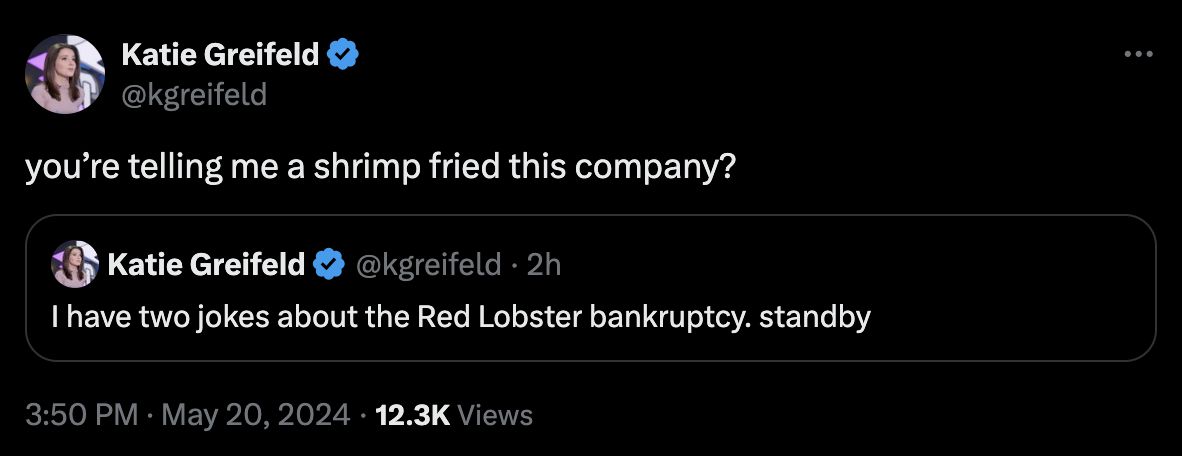The seafood company that drove restaurant chain Red Lobster to bankruptcy with a misguided ‘Endless Shrimp’ promotion was previously praised for using blockchain technology to promote sustainable seafood production.
Bangkok-based Thai Union became Red Lobster’s biggest investor in 2020 and subsequently took the decision to make the company’s popular ‘$20 Ultimate Endless Shrimp’ offer a permanent part of its menu. The promotion, which had been running on a limited-time basis for 20 years, was seen as the ideal way to shift the huge amounts of shrimp that Thai Union was catching.
However, a 40% increase in customer traffic saw the chain, which was already struggling due to increased labor costs, falling sales, and the effects of the Covid-19 pandemic, giving away mountains of free shrimp it could ill afford.
As reported by CNN, under the stewardship of a CEO appointed by Thai Union, Red Lobster cut ties with two of its breaded shrimp suppliers, leaving the Bangkok-based seafood giant with an exclusive deal.
This reportedly led to higher costs and went against Red Lobster’s previous approach of choosing its suppliers based on projected demand.
The free shrimp fiasco has reportedly cost Red Lobster somewhere in the region of $11 million.

Read more: How Humanity Protocol CEO drove his previous firm to insolvency
Thai Union used blockchain to track shrimp
Back in 2020, Thai Union announced that it would be putting shrimp on the blockchain. The company, alongside data analytics company Sea Warden and supply chain traceability firm Wholechain, began piloting the use of satellite imaging for shrimp farming operations.
The idea was that satellite images collected by Sea Warden would generate data that Wholechain could store on the blockchain and allow shrimp farmed by Thai Union to essentially be tracked ‘from farm to fork.’
This, in turn, would provide valuable insights into the sustainability, health, and environmental impacts of Thai Union’s activities and ultimately inform its purchasing and business decisions.


